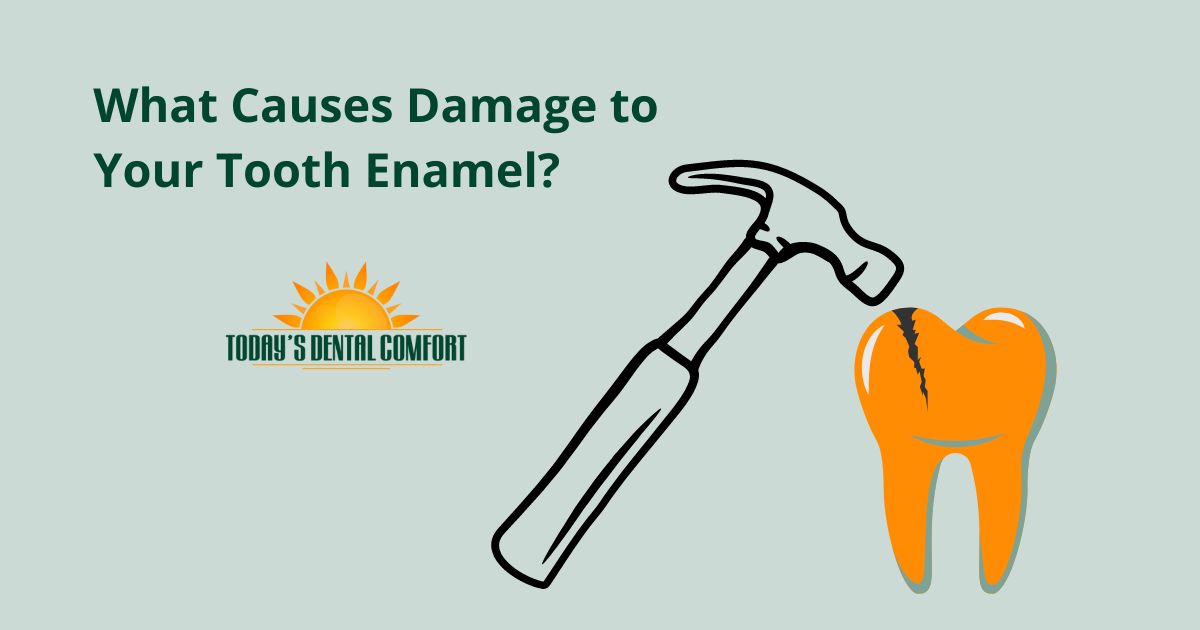What Causes Damage To Your Tooth Enamel?
Would you believe that your tooth enamel is the strongest substance in your body? It makes sense that tooth enamel, the outer covering of your teeth, is the strongest substance in your body because it is used constantly. We eat numerous times a day, and our teeth are designed to withstand the abuse of chewing and biting. However, tooth enamel is not indestructible and can become damaged when not cared for properly.
What Damages Your Tooth Enamel?
You may be surprised to learn some of the ways tooth enamel can become damaged. Although tooth enamel can withstand quite a bit of pressure, these are the things that can break it down:
Cleaning Your Teeth Incorrectly
If you brush your teeth using vigorous strokes or a toothbrush with bristles that are too hard, you can damage your tooth enamel. Enamel can also be damaged when you are not brushing thoroughly and not flossing.
Certain Foods and Drinks
Sugary and highly acidic foods and beverages can damage your teeth. You were most likely aware of the effects sugar has on your teeth, but maybe you didn’t know that acidic foods can cause just as much damage. These are items such as carbonated beverages, berries, apples, citrus fruits, and tomato sauce.
Grinding Your Teeth
Many patients are unaware they grind their teeth because it often occurs during sleep. Over time, this can lead to problems, such as uneven enamel wear and cracked and broken teeth.
Signs Your Tooth Enamel is Damaged
There are many signs that indicate your tooth enamel is damaged. Two of the most common signs are tooth sensitivity and severe discoloration. Tooth sensitivity is often experienced when eating and drinking foods that are either extremely hot or cold. Tooth discoloration is evident when you smile, because teeth will have a stained and yellow appearance that cannot be corrected with over-the-counter whitening products.
If you feel your tooth enamel may be compromised or damaged, be sure to contact our office located in Burton, MI. We want to evaluate the state of your teeth as soon as possible to make any repairs. Delaying treatment can lead to more serious treatments, such as a root canal or even tooth extraction. We want to avoid that at all costs, so we recommend being diligent with scheduling an appointment.









